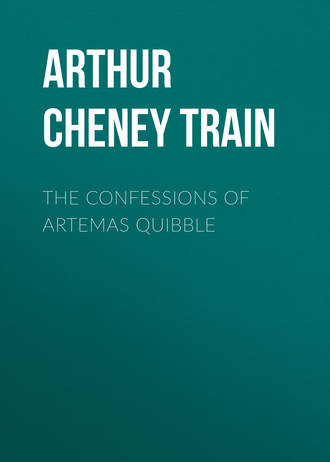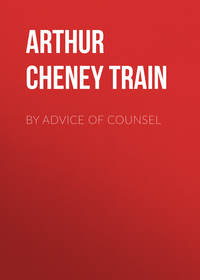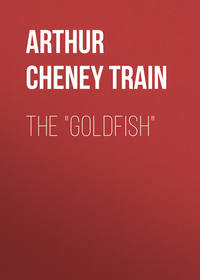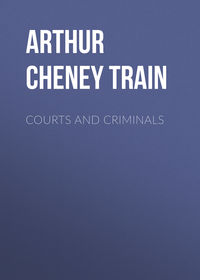
The Confessions of Artemas Quibble
That evening I drew up with great care a policy of insurance against the loss occasioned by having to employ counsel if arrested for crime. On its back was indorsed the following insidious philosophy:
"Innocent men, as well as guilty, are frequently arrested for violating the law. This costs money. Lawyers are notorious extortioners. For ten dollars a year we guarantee to defend you for nothing if charged with crime. Twenty-five dollars insures entire family. We make no distinction between ex-convicts and others.
"ABRAHAM GOTTLIEB,
"Of Counsel."
My next task was to boom my scheme by successful advertising, and with this in view I persuaded Gottlieb to issue free policies to a dozen or so of the worst rascals that he knew. Naturally it was not long before one of them was arrested for some offence, and Gottlieb as naturally succeeded in getting him off, with the natural result that the fellow went all over town telling how one could be a burglar with impunity for ten dollars a year. At about the same time I heard of a man who was in the Tombs charged with murder, but who was almost certain to get off on account of the weakness of the case against him. I, therefore, visited the defendant and offered to give him a policy for ten dollars, in spite of the fact that he was already in jail. He snatched readily enough at the chance of getting as good a lawyer as Gottlieb to defend him for ten dollars, and when he was acquitted made so much of it that there was hardly a prisoner in the Tombs who did not send for one of our policies to guard against future legal difficulties. To all of these we offered free advice and a free trial upon the charges pending against them, as a sort of premium or inducement to become policy-holders, and in six months had over two hundred subscribers. This meant in cash about two thousand dollars, but it necessitated defending any or all of them whenever they were so unfortunate as to run foul of the police, and as luck would have it out of the two hundred policy-holders forty-seven of them were arrested within the first six months—fifteen for burglary, eleven for robbery and assault, sixteen for theft, and five for murder. These latter cases took all of Gottlieb's working hours for some seven and a half weeks, at the end of which time he threw up his hands and vowed never to insure anybody against anything again. It was impossible for me to try any of the cases myself, as I was not as yet admitted to the bar, and the end of the matter was that we returned the premiums and cancelled the policies of the remaining one hundred and fifty-three insured. This done, Gottlieb and I heaved sighs of mutual relief.
"You are a clever fellow, Quib," he acknowledged good-naturedly, "but in some ways you are ahead of your time. You ought to have gone into life insurance or railroading. Your genius is wasted on anything that ain't done wholesale. Let's you and me just stick to such clients as come our way in the natural course of events. There isn't any one born yet big enough to do all the criminal law business in this little old town by himself."
And in this I with some regret agreed with him.
CHAPTER IV
As I have already taken some pains to indicate, I was fully persuaded of the practical value of a professional connection with a legal firm of so eminent a standing as that of Messrs. Haight & Foster, and for this reason the reader may easily appreciate the shock with which I received the information that my presence was no longer desired in the office.
Mr. Haight had unexpectedly sent for me word that I was wanted in the library and I had obeyed his summons without a suspicion that my career as a civil attorney was to be abruptly terminated. As I closed the door behind me I saw the old lawyer standing near the window, his spectacles poked above his eyebrows and his forehead red with indignation. Between the thumb and forefinger of his left hand he held a card.
"So," he exclaimed, vainly trying to appear collected, "I find that my firm has been conducting an uptown office for criminal business! This is one of your cards, I believe?"
He tossed it from him as if it were infected with some virulent legal disease, and I saw that it was one of the unfortunate cards that I had had printed before forming my partnership with Gottlieb. It was no use denying anything.
"Yes," I answered, as quietly as I could, "it is one of my cards."
"I am also informed," he continued, his voice trembling with suppressed wrath, "that while you have been masquerading as a student in this office you have been doing a police-court law business in association with a person named Gottlieb."
I turned white, yet made no traverse of his indictment. I was going to be kicked out, but I felt that I could at least make my exit with a dignified composure.
"Young man, you are no longer wanted here," continued Mr. Haight with acerbity. "You have found your own level without assistance and you will no doubt remain there. You obtained your position in this office by means of false pretences. I do not know who you really are or whence you really come, but I have no doubt as to where you will eventually go. This office does not lead in the right direction. You ought to be locked up! Get out!"
I went.
Glib as I was in the defence of others I found it difficult to argue in my own behalf. At any rate, it would have availed nothing. I had been tried, convicted, and sentenced in my absence, and it was vain to hope for pardon. There is something in righteous indignation that inevitably carries respect with it. I fully sympathized with Mr. Haight. I had cheated and outraged his firm and I knew it. I had no excuse to offer and he was entitled to his burst of excoriation. Morally I felt sure that the worm that had worked deepest into his bone was the fact that my guardian, whose name, as the reader may recall, I had made use of as an introduction, had not in fact written "Tottenham on Perpetuities" at all.
Thus I passed out of the office of Haight & Foster much as I had slipped in—quite unostentatiously. All hope of success along the slow and difficult lines of legitimate practice faded from my mind. Whether I willed it or not, as a criminal attorney I was destined to make my bread.
There was now no reason why Gottlieb and I should any longer conceal our partnership, and we decided, therefore, to go into things on a much larger scale than theretofore, and hired a suite of offices on Centre Street, near the Tombs, where we could be within easy reach of the majority of our clients. A sign some forty feet long and three feet wide ran along the entire front of the building, bearing the names Gottlieb & Quibble. Our own offices were in the rear, the front rooms being given over to clerks, runners, and process servers. A huge safe bought for a few dollars at an auction stood in the entrance chamber, but we used it only as a receptacle for coal, its real purpose being simply to impress our clients. We kept but few papers and needed practically no books; what we had were thrown around indiscriminately, upon chairs, tables—even on the floor. I do not recall any particular attempt to keep the place clean, and I am sure that the windows were never washed. But we made money, and that was what we were out for—and we made it every day—every hour; and as we made it we divided it up and put it in our pockets. Our success from the start seemed in some miraculous way to be assured, for my partner had, even before I knew him, established a reputation as one of the keenest men at the criminal bar.
As time went on our offices were thronged with clients of all sexes, ages, conditions, and nationalities. The pickpocket on his way out elbowed the gentlewoman who had an erring son and sought our aid to restore him to grace. The politician and the actress, the polite burglar and the Wall Street schemer, the aggrieved wife and stout old clubman who was "being annoyed," each awaited his or her turn to receive our opinion as to their respective needs. Good or bad they got it. Usually it had little to do with law. Rather it was sound, practical advice as to the best thing to be done under the circumstances. These circumstances, as may be imagined, varied widely. Whatever they were and however little they justified apprehension on the part of the client we always made it a point at the very outset to scare the latter thoroughly. "Conscience doth make cowards of us all." But a lawyer is a close second to conscience when it comes to coward-making; in fact, frightening people, innocent or guilty, became to a very large extent our regular business.
The sinners most of them live in daily terror of being found out and the virtuous are equally fearful of being unjustly accused. Every one knows how a breath of scandal originating out of nothing can wither a family and drive strong men to desperation. The press is always ready to print interesting stories about people, without inquiring too closely into their authenticity. Curiously enough we found that an invitation to call at our office usually availed to bring the most exemplary citizens without delay. I can remember not more than three who had the courage to refuse. Most came, as it were, on the run. Others made a bluff at righteous indignation. All, in the end, paid up—and paid well. Our reputation grew, and in the course of a few years the terror of us stalked abroad through the city.
Our staff was well organized, however disordered may have been the physical appearance of our office. In the first place we had an agent in every police court who instantly informed us whenever any person was arrested who had sufficient means to make it worth our while to come to his assistance. This agent was usually the clerk or some other official who could delay the proceedings in such a way as to give us time to appear upon the scene. We also had many of the police in our pay and made it a practice to reward liberally any officer who succeeded in throwing us any business. In this way defendants sometimes acquired the erroneous idea that if they followed the suggestion of the officer arresting them and employed us as their attorneys, they would be let off through some collusion between the officer and ourselves. Of course this idea was without foundation, but it was the source of considerable financial profit to us, and we did little to counteract the general impression that had gone abroad that we "stood in" with the minions of the law and were personae gratae to the judges of the police courts.
After the telephone came into general use Gottlieb employed it in many ingenious ways. He even had an unconnected set of apparatus hanging on the wall of the office, through which he used to hold imaginary conversations with judges and city officers for the benefit of clients who were in search of "inflooence." It is a common weakness of the layman to believe that more can be accomplished through pull than through the merit of one's cause. Even litigants who have the right on their side are quite as apt to desire an attorney who is supposed to be "next" to the judge as are those whose only hope is through judicial favor. Gottlieb's relations to the lower magistrates were in many instances close, but he professed to be on the most intimate terms with all who wore the ermine, whether in the police courts or on the supreme bench. Time after time I have overheard some such colloquy as the following. A client would enter the office and after recounting his difficulties or wrongs would cautiously ask Gottlieb if he knew the judge before whom the matter would come.
"Do I know him?" my partner would cry. "I lunch with him almost every day! Wait a minute, and I'll call him up."
Vigorously ringing the bell attached to the unconnected instrument upon the wall Gottlieb would indulge his fancy in some such dialogue as:
"Hello—hello! Is this Judge Nemo? Oh, hello, Jack, is it you? Yes, it's me—Abe. Say, I want to talk over a little matter with you before I go into court. How about lunch? Sure—any time will suit me. One o'clock? I'll be there. Thanks. So long, old man. See you later!"
The client by virtue of this auricular demonstration of our friendly relations with the bench would be instantly convinced that his success was assured and that Gottlieb & Quibble were cheap at any retainer they might choose to name.
For the most part the routine office work fell to me and Gottlieb attended to the court end of the business. For there was no more adroit or experienced trial attorney in the courts than my little hook-nosed partner. Even down-town attorneys with almost national reputations as corporation lawyers would call him in as associate counsel in important cases in which a criminal element was involved. Thus we frequently secured big fees in what Gottlieb was pleased to call legitimate practice, although I am inclined to believe that our share was small compared with that of the civil lawyers who had retained us. On one occasion where Gottlieb had been thus called in, the regular attorney of record, who happened to be a prominent churchman, came to our office to discuss the fee that should be charged. The client was a rich man who had sued successfully for a divorce.
"How much, Mr. Gottlieb," inquired the attorney, stroking his chin, "do you think would be a fair amount to ask for our services?"
My partner hesitated for a moment and mentally reviewed the length of time of the case—a very simple one—had occupied.
"Do you think five thousand dollars would be too much?" he finally asked with some hesitation.
"Five!" cried the lawyer in astonishment. "It should be twenty thousand—at the least!"
It is not my intention to give a history of the firm of Gottlieb & Quibble, but rather a general description of the work of any criminal law office. Its object is precisely the same as that of the best offices where civil law is practised—that is, to make money out of the client. But inasmuch as the client who seeks the aid of a criminal attorney is usually in dread of losing not merely money but liberty, reputation, and perhaps life as well, he is correspondingly ready to pay generously for any real or fancied service on the part of the lawyers. Thus the fees of a criminal practitioner—when the client has any money—are ridiculously high, and he usually gets sooner or later all that the client has. Indeed, there are three golden rules in the profession, of which the first has already been hinted at—namely, thoroughly terrify your client. Second, find out how much money he has and where it is. Third, get it. The merest duffer can usually succeed in following out the first two of these precepts, but to accomplish the third requires often a master's art. The ability actually to get one's hands on the coin is what differentiates the really great criminal lawyer from his inconspicuous brethren.
The criminal attorney, therefore, whether he be called to see his client at the Tombs or in the police station, or is consulted in his own office, at once informs the latter that he is indeed in a parlous state. He demonstrates to him conclusively that there exist but a few steps between him and the gallows, or at least the State's prison, and that his only hope lies in his procuring at once sufficient money to—first, get out on bail; second, buy off the witnesses; third, "fix" the police; fourth, "square" the judge; and lastly, pay the lawyer. Even where the prisoner has no money himself, his family are usually ready to do what they can to get him off, in order to save themselves from the disgrace of being related to a convict. It is not what may actually happen to your client, but what he thinks may happen, that makes him ready and anxious to give up his money. Thus, the more artistic the practitioner in painting the dire consequences which will result if the family of the offender does not come to his rescue the quicker and larger will be the response. Time also is necessary to enable the ancestral stocking to be grudgingly withdrawn from its hiding-place and its contents disgorged, or to allow the pathetic representations of his nearer relatives to work upon the callous heart of old Uncle John, who once held a city office and has thus plenty of money. The object of the lawyer being to hang on to the client until he has got his money, it follows that if the latter is locked up in jail it is all the better for the lawyer, unless it be expedient to let him out to raise funds. Thus criminal attorneys are not, as a rule, particularly anxious to secure the release of a client from jail. Solitary confinement increases his apprehension and discomfort and renders him more complacent about paying well for liberty. The English king who locked up the money-lender and had one of his teeth drawn out each day until he made the desired loan knew his business. Once the fellow is out of jail—pfft! He is gone, and neither the place nor you know him more. Very likely also he will jump his bail and you will have to make good your bond. One client in jail is worth two at large.
Lawyers exercise much invention in keeping their clients under control. I recall one recent case where a French chauffeur who had but just arrived in this country was arrested for speeding. The most that could happen to him would, in the natural course of events, be a fine of fifteen or twenty dollars. But an imaginative criminal practitioner got hold of him in the police court and drew such a highly colored picture of what might happen to him that the Frenchman stayed in jail without bail under an assumed name, raised some three hundred dollars by means of a draft on Paris, handed it over to his counsel, and finally after a delay of two weeks was tried in Special Sessions, found guilty, and let go on a suspended sentence. He is now looking for the lawyer with a view to doing something to him that will inevitably result in his own permanent incarceration.
Another practical distinction between civil and criminal practitioners is that while the first are concerned for the most part with the law, the second are chiefly occupied with the facts. In civil cases the lawyers spend most of their time in trying to demonstrate that, even assuming their opponents' contentions as to the facts to be true, the law is nevertheless in their own favor. Now, this is a comparatively easy thing, since no one knows what the law in most civil cases is—and it truth it might as well be one way as the other. A noted member of the supreme bench of the United States is reported to have said that when he was chief justice of one of the State courts, and he and his confrères found themselves in a quandary over the law, they were accustomed to send the sergeant- at-arms for what they called the "implements of decision"—a brace of dice and a copper cent. Thus the weightiest matters were decided without difficulty.
Now, the taking of a purse out of a lady's reticule does not present much confusion as a legal proposition. It would be somewhat difficult to persuade a judge or a jury that picking a pocket is not a crime. It is far easier to demonstrate that the pocket was not picked at all. This is generally only a question of money. Witnesses can easily be secured to swear either that the lady had no reticule, or that if she had a reticule it contained no purse, or that some person other than the defendant took the purse, or that she herself dropped it, or that even if the prisoner took it he had no criminal intent in so doing, since he observed that it was about to slip from the receptacle in which it was contained and intended but to return it to her. Lastly, if put to it, that in fact the owner was no lady, and therefore unworthy of credence.
Few persons realize how difficult it is for an outsider, such as an ordinary juryman, to decide an issue of fact. A flat denial is worth a hundred ingenious defences in which the act is admitted but the attempt is made to explain it away. It is this that gives the jury so much trouble in criminal cases. For example, in the case of the pickpocket the lawyers and the judge may know that the complaining witness is a worthy woman, the respectable mother of a family, and that the defendant is a rascal. But each comes before the jury presumably of equal innocence. She says he did, he says he didn't. The case must be proven beyond a reasonable doubt. Generally the defendant's word, so far as the jury can see, is as good as his accuser's. If there are other witnesses it is usually not difficult, and certainly not impossible, to show that they have poor eyesight, bad memories, or are undesirable citizens in general. The criminal lawyer learns in his cradle never to admit anything. By getting constant adjournments he wears out the People's witnesses, induces others to stay away, and when the case finally comes to trial has only the naked accusation of the complainant to disprove. Or, to put it in more technically correct fashion, the complainant has only his own word wherewith to establish his case beyond a reasonable doubt. A bold contradiction is often so startling that it throws confusion into the enemy's camp.
I once defended a worthy gentleman named Cohen on a charge of perjury, alleged to have been committed by him in a civil case in which he, as defendant, denied that he had ever ordered a set of stable plans from a certain architect. The latter was a young man of very small practice who had an office but no clerks or draughtsmen. He certainly believed with the utmost honesty that my client had come to his office, engaged him to design a stable, and approved an elaborate set of plans that he had drawn. When it came to paying for them Mr. Cohen declined. The architect brought suit, and at the trial swore to the dates and places of the interviews between Cohen and himself, and to all the surrounding circumstances and details connected with the execution of the plans in question. His lawyer expected that the defendant would interpose the defense that the plans were inferior, defective, or worthless. Not at all! Mr. Cohen swore that he had never ordered the plans and, in fact, had never seen the architect in his life! He alleged that until the suit was brought he had never even heard of him, and that either the architect was demented or a liar, or else some other Cohen had given the order. The architect and his lawyer were thunderstruck, but they had no witnesses to corroborate their contentions, since no one had ever seen Cohen in the other's office. The jury disagreed and the architect in some way secured Cohen's indictment for perjury. But during the criminal trial, at which I defended him, Mr. Cohen calmly persisted in his denial that he had ever enjoyed the honor of the architect's acquaintance, and after two prosecutions, in each of which the jury hopelessly disagreed, the indictments against him were dismissed. From this it may easily be inferred that no fact is too patent to be denied. Frequently the more heroic the denial the greater its verisimilitude to truth. The jury feel that no prisoner would deny a fact that it would be much easier to explain away—and believe him.
I once represented an Italian called the King of Mulberry Street, who was charged with having deliberately shot in the head and killed a respectable dealer in olive-oil against whom he held no grudge whatsoever. The King was just an egotistic little man who liked notoriety and admiration. He was wont to refer to himself simply as "The Bravest Man," without reference to time or place—just "The Bravest Man." He was accustomed to demonstrate his bravery by shooting inoffensive people whenever the idea seized him. He never killed anybody save quiet and law-abiding fellow citizens who made no resistance, and the method he selected was to shoot them through the head. He seemed to feel that it was essential to his dignity thus to execute at least one human being every six months, and the extraordinary feature of his history was that he had never been convicted.
The case that I was called upon to defend was this: Not having killed anybody for nearly a year and fearing to jeopardize his dual title of King of Mulberry Street and The Bravest Man, he put a forty-four calibre pistol in his pocket, donned his Sunday clothes and took a walk. The thoroughfare was crowded, the day bright and fair, the time twelve o'clock noon. Presently the oil merchant approached and The King, first glancing about him to make sure that he had a "gallery," went up to him, placed the pistol at his head and fired. He was immediately arrested and indicted for murder.
Now, twenty witnesses had seen him fire the fatal shot. Yet there was not the slightest reason in the world why he should have done such a thing. Upon the trial my client insisted on simply denying that he had done anything of the kind. I had naturally assumed that he would either claim that the shooting had been accidental or that he had fired in self-defense, after he had first been attacked by the deceased. But no—he had had no pistol, did not know the man, and had not killed him. Why should he have killed him? he inquired. No one could answer the question, least of all the jury. The twenty witnesses were positive that he had done so, but he was equally positive that he had not. No one could offer the slightest explanation of the deed—if it had in fact taken place. The jury puzzled over the case for hours, at one time, I am informed, being on the point of acquitting the prisoner for lack of proof of any motive. They reasoned, with perfect logic, that it was almost if not quite as improbable that the defendant should in broad daylight on a public street have shot down a man against whom he had not the slightest grudge as that twenty commonplace citizens should be mistaken as to what they had seen. Whether they were aided in reaching a verdict by "the implements of decision" I do not know, but in the end they found my client guilty and in due course he paid the penalty, as many another king has done, upon the scaffold. The plain fact was that The King was a "bravo," who took a childish and vain pride in killing people. He killed for the love of killing, or rather for the egotistic satisfaction of being talked of as a killer. At any rate, there are many like him. While his defence was unsuccessful, he came near enough to escaping to point out the value of a bold denial in a criminal case.





